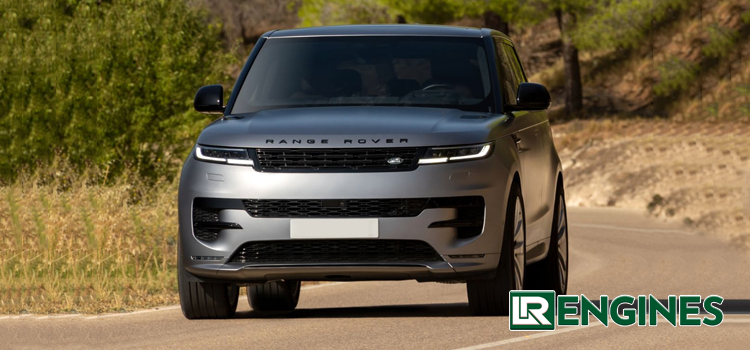Off-Road Prowess: Unveiling the Land Rover Sport’s Engine Mastery on Extreme Terrain

Land Rover Sport has long been celebrated for its prowess on and off the road. In this article, we delve into the heart of its performance – the engine – and explore how it handles the most extreme terrains, showcasing why it stands out in the realm of off-road vehicles.
Engine Power and Performance
The Land Rover Sport boasts a range of powerful engines designed to provide optimal performance across diverse terrains. The cutting-edge technology under the hood ensures that the vehicle can seamlessly transition from city roads to rugged landscapes without compromising on power or efficiency.
Terrain Response System
One of the standout features contributing to the Land Rover Sport’s off-road capabilities is its Terrain Response system. This technology allows the driver to optimize the vehicle’s performance by selecting specific modes tailored to different terrains, such as mud, sand, rocks, or snow. The engine adapts its power delivery to maximize traction and stability, offering unparalleled control in challenging conditions.
Torque Vectoring and Traction Control
Land Rover’s advanced engineering extends to torque vectoring and traction control systems. These features work in harmony with the engine to manage power distribution to each wheel independently, enhancing stability and grip. This ensures that even on the most uneven and slippery surfaces, the Land Rover Sport maintains its composure and continues to deliver a commanding performance.
All-Terrain Progress Control
A unique and innovative addition to Land Rover’s off-road arsenal is the All-Terrain Progress Control (ATPC) system. This acts as a low-speed cruise control, allowing the driver to focus solely on steering while the vehicle automatically manages acceleration and braking. The engine’s responsiveness in tandem with ATPC makes negotiating challenging terrains a breeze, emphasizing Land Rover Sport’s adaptability to extreme conditions.
Under the Hood – Engine Specifications
To truly appreciate the Land Rover Sport’s off-road capabilities, it’s crucial to understand the engine specifications. Whether it’s the robust V6 or the high-performance V8, each engine is finely tuned to deliver the perfect balance of power, torque, and fuel efficiency. The combination of supercharging and turbocharging in some variants ensures instant power delivery across the entire RPM range, essential for conquering challenging landscapes.
Cooling Systems for Endurance
Off-road adventures often involve pushing vehicles to their limits, requiring efficient cooling systems to prevent overheating. Land Rover Sport’s engines are equipped with advanced cooling systems, including larger radiators and enhanced airflow, ensuring optimal operating temperatures even in the harshest conditions. This not only enhances performance but also contributes to the longevity of the engine under extreme stress.
Impact of Electric and Hybrid Technology
As the automotive industry evolves, Land Rover Sport has embraced electric and hybrid technology to further enhance its off-road capabilities. Electric motors, when combined with traditional engines, provide instantaneous torque, improving the vehicle’s ability to navigate challenging terrains. The hybrid models offer a perfect blend of efficiency and power, showcasing Land Rover’s commitment to sustainability without compromising performance.
FAQs
How does the Terrain Response system work?
The Terrain Response system in Land Rover Sport allows the driver to select specific modes for different terrains. It adjusts the engine’s power delivery, suspension settings, and other parameters to optimize performance, ensuring maximum traction and control.
Can the Land Rover Sport handle extreme weather conditions?
Yes, the Land Rover Sport is designed to tackle a variety of extreme weather conditions. Its advanced traction control systems, along with specialized driving modes, enable it to navigate through snow, mud, sand, and other challenging terrains with ease.
What is the significance of torque vectoring in off-road situations?
Torque vectoring allows the Land Rover Sport to distribute power to each wheel independently, enhancing stability and grip. This is crucial in off-road situations where maintaining traction on uneven surfaces is paramount.
How does All-Terrain Progress Control (ATPC) enhance off-road driving?
ATPC acts as a low-speed cruise control, managing acceleration and braking automatically. This allows the driver to focus on steering, making it easier to navigate challenging off-road terrains without the need to constantly modulate the throttle.
Are the cooling systems effective during prolonged off-road use?
Yes, Land Rover Sport’s engines are equipped with advanced cooling systems, including larger radiators and improved airflow. These ensure optimal operating temperatures even during prolonged off-road use, preventing overheating and maintaining peak performance.
How do electric and hybrid technologies contribute to off-road capabilities?
Electric and hybrid technologies provide instantaneous torque, enhancing the Land Rover Sport’s off-road capabilities. The hybrid models combine efficiency with power, showcasing the brand’s commitment to sustainability without compromising performance.
Can the Land Rover Sport’s engine handle towing in off-road conditions?
Yes, the Land Rover Sport is equipped with a robust engine that can handle towing in off-road conditions. The combination of power, torque, and advanced towing features ensures a confident towing experience even in challenging terrains.
What engine options are available for the Land Rover Sport?
The Land Rover Sport offers a range of engine options, including V6 and V8 variants. These engines are finely tuned to deliver a balance of power, torque, and fuel efficiency, catering to diverse driving preferences and requirements.


